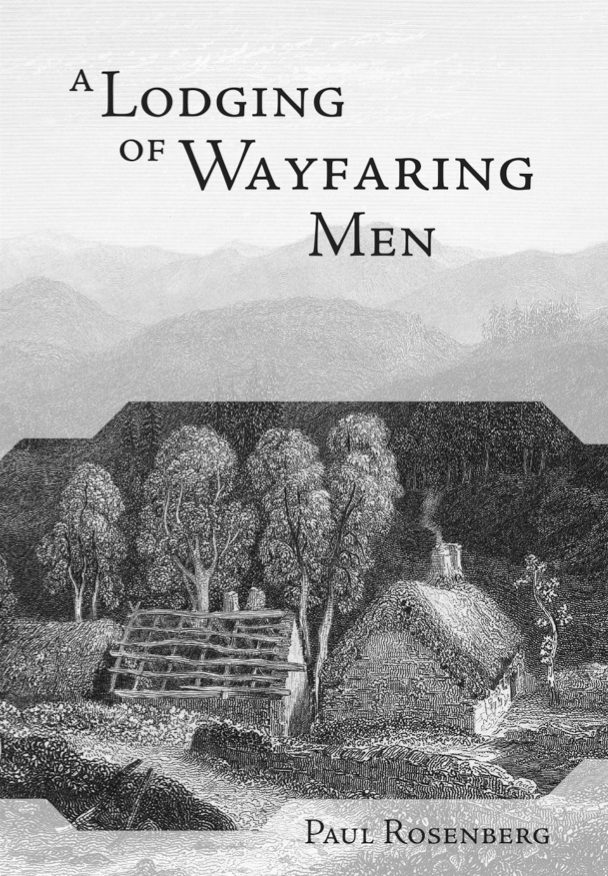Why Cryptoanarchy Is Not a Revolutionary Movement

This important interview just arrived and I'd like to pass it along. (I had to edit for length. The full interview can be found here.) The interviewer was Tatjana, and we'll begin with her introduction.
The Darknet is a fascinating topic for me, ever since it started to shape my life years ago. These days it seems that it is becoming a buzzword, along with “cryptoanarchy.” For this reason I thought it would be interesting to sit down with two well-known thinkers from the scene (and more importantly, doers) and discuss these topics with them. To keep it in style, the interview was conducted on the oldest darknet IRC server, home of both Frank Braun and Smuggler.
Tatjana Adamov: Smuggler, your “Project of Cryptoanarchy” talk at HCPP18 was one of the most discussed talks that year. It sparked great interest, and you were asked to give it again at the opening of Paralelna Polis in Bratislava. What made you give that talk and what was your goal?
Smuggler: I gave the talk because I had the feeling that cryptoanarchy had become a brand, a word without meaning. That there's too little thought about the core ideas that make cryptoanarchy so interesting, at least for me. That so many different things are all put into the cryptoanarchy label, even if they conflict with each other. I just wanted to go back to why cryptoanarchism is about cryptography and anarchism, and how the two relate.
Tatjana Adamov: You emphasized social and psychological aspects. Can you elaborate why you don't mention technical aspects?
Smuggler: Darknet technology is an enabler for human interaction. It allows human interaction to take a different form from what we are used to from the physical world. Anonymity changes things. It changes what you learn about people, how you interact with them, and also how you look at yourself. The fascinating and challenging aspect is when communities and societies are built around anonymity. That is where things get exciting for me. You'll meet interesting minds and characters that are unusually open, people you can connect to and enjoy interacting with. Because the fear of shame and punishment is reduced – everybody is anonymous after all. No attribution!
The width of characters in anonymous communities is thus very interesting. You can witness people going from being copycats of social models in meatspace to people experimenting with becoming themselves. They become more true, for good and worse. Of course that leads to extremes sticking out. The real beauty, however, is all those that are between the extremes, that are just as human as you are, everybody shedding social expectations that have no meaning in anonymous communities.
Tatjana Adamov: Frank, you gave two interesting talks criticizing technology. One was at HCPP17 and the other was at the opening of Paralelna Polis in Bratislava. I personally find it important that even in a technocentric society, we criticize the technology we build, so I found your two talks very important. The question is: Do you think everything produced by people claiming to be cryptoanarchists is good?
Frank Braun: Of course not everything produced by somebody claiming to follow a certain philosophy is good. I think every new technology has to be evaluated for its merits, independently of the person or entity producing it.
Does this technology bring out the best in humans, or does it make us more machine-like? Some technologies can be clearly categorized into good or bad, but for others it depends more on what you use it for. (The kitchen knife example comes to mind.)
Tatjana Adamov: Wouldn't you say it's ironic that cryptoanarchist ideas seem totalitarian, when at the same time their proponents claim to fight for liberty and freedom?
Frank Braun: In my view, “cryptoanarchy” was always about anarchy (“no ruler”) by means of cryptography. Very important here are anonymous communication and payment methods, because these technologies strike at the root of the repression of what in my view are fundamental human rights: freedom of speech and freedom of transaction. Cryptoanarchy is about providing more freedom for the people who want it, without interfering with the lives of others.
Devising anonymized means to kill people for a “good cause” (assassination markets) is not cryptoanarchy; it is just plain evil. Using technological tools to start a revolution is not cryptoanarchy either; it is the imposition of a new method of rulership on a ruled population.
Revolutions, with the help of technology or not, have two big problems:
The new ruling class coming into power after a revolution is usually worse than the one it replaces. It seems to be impossible to create a “better” system when you start with ethically dubious means (a revolution implies that).
And even more importantly, what if the population doesn't want a revolution? Who gives you the right to change their system by force?
Cryptoanarchy is about creating a parallel alternative that does not destroy the surrounding power structure and tries to live in harmony with it. There are many examples of this (ethnic minorities with their own communities, legal structures, business frameworks, etc.). Cryptoanarchy simply brings this concept into the technological sphere, although it also has a physical aspect to it.
Tatjana Adamov: Why do you think people are reluctant to take the approach of parallel systems and would rather support something more radical – for example, Amir Taaki's Academy?
Frank Braun: I think a destructive approach (revolution) is often more appealing than a constructive one. A destructive approach requires only an enemy; a constructive approach requires a vision of something “better.” And even if you have a vision, it is not clear that it is really better until you've implemented it. Even less clear is the question of whether it's better for your neighbor as well.
That's why it is better to try alternative solutions in parallel to the existing ones and find out if they really are better. This also prevents a monoculture.
Smuggler: I would add the issue of impatience. People feel oppressed and powerless in the face of the systems they live in. This leads to a wrong conclusion: that the pain will go away if the system is brought down. But that is not the case. You have to have something in its place. That something, a new way of doing things, has to be built first, with all its tedious aspects. It requires building social, cultural, and legal frameworks, none of which can be created by fiat but have to be discovered and constructed by a community of people, a society. Otherwise, after revolution, you end up with nothing at all, except for smoldering ruins.
However, the appeal for more radical approaches is clear. It gives people purpose, in a world and time where many don't see a clear purpose for their lives. However, if that sense of purpose isn't constructive or realistic, it can produce negative consequences. People cling to purposes they shouldn't and become manipulatable by their leaders.
A friend of mine, Paul Rosenberg, once asked me a question that I think applies here: “What do you envision you will do after the revolution?” That is a really good question, and I think one should really consider the answer. When that answer is found, I think one has found what one should do instead of a revolution. If what keeps you from accomplishing your dreams needs to be overturned by revolutionary means, then the most radical thing you can do is start living it now. Otherwise you end up being a revolutionary for revolution's sake, which is a dangerous delusion.
And what happens if the system you oppose doesn't break down on its own? Will you take unethical steps to quicken its demise, without considering the cost to those on the receiving end? Impatience, wrongly assigned life purpose, and lack of vision for the “after” have led too many people to do horrific things.
Tatjana Adamov: I really hope that the discussion doesn't end here. Do you have any final words?
Frank Braun: Keep in mind that the world is not static. People you don't like can be very smart. For every action there is a reaction, but sometimes the reaction is delayed.
Smuggler: We're on a path of discovery. Discovery requires venturing into the unknown, with friends on your side and a clear radar for dangers and opportunities. And in the end we always find ourselves to be part of the problem – you can get the kid out of the ghetto, but not the ghetto out of the kid.
* * * * *
The novel that helped put the crypto revolution into high gear.
Comments from readers:
“Of the twenty five or so people I worked with last fall, all of them revered A Lodging of Wayfaring Men as a bible. They referred to the house and their community effort as a Lodge. We all felt it was modeled on the Free Souls.”
“Actually, I am somewhat at a loss as to how I might explain how I feel about this book other than to say what a great mind to write such an awesome story!”
“I'm an Old guy and find that Rosenberg has captured many Real-World truths in this novel. I wish the Millennial Generation would read this novel and consider the concepts and rationale presented here.”
Get it at Amazon or on Kindle.* * * * *
Paul Rosenbergwww.freemansperspective.com
P.S. Paul did an interview with Dr. Janda a few days ago, and it's spreading wildly.
If you are actually the original author, please do reply to let us know!

Hello @allforprivacy! This is a friendly reminder that you have 3000 Partiko Points unclaimed in your Partiko account!
Partiko is a fast and beautiful mobile app for Steem, and it’s the most popular Steem mobile app out there! Download Partiko using the link below and login using SteemConnect to claim your 3000 Partiko points! You can easily convert them into Steem token!
https://partiko.app/referral/partiko
Congratulations @allforprivacy! You received a personal award!
You can view your badges on your Steem Board and compare to others on the Steem Ranking
Vote for @Steemitboard as a witness to get one more award and increased upvotes!